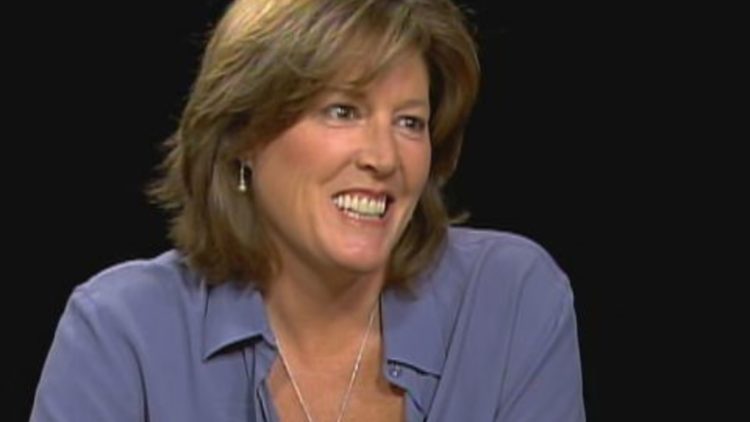
Sally Jenkins is a sports columnist and feature writer for The Washington Post. She was previously a senior writer for Sports Illustrated. She has been named the nation’s top sports columnist by the Associated Press sports editors four times and was a finalist for the Pulitzer Prize in 2019. In 2013, she earned a first-place AP award for “Do No Harm,” an investigative series, co-written with Rick Maese, on medical care in the National Football League. She won the 2021 Red Smith Award for “major contributions to sports journalism,” the same prize her late father, sportswriter Dan Jenkins, won in 2013. Jenkins is the author of 12 books, four of which were New York Times bestsellers, most recently the No.1 “Sum It Up” with legendary basketball coach Pat Summitt. She is also the author of “The Real All Americans,” the historical account of how the Carlisle Indian School took on the Ivy League powers in college football at the turn of the century and won. Her work has been featured in Smithsonian, GQ and Sports Illustrated. A native of Texas, Jenkins graduated from Stanford and lives in Sag Harbor, New York.
What’s the most important lesson you’ve learned as a writer?
That there is no such thing as writing without discipline and structure. Inspiration is almost a mirage. It’s not that it doesn’t exist; it does. But if it’s not married to method, regimen, it’s useless, it’s just a scrap of paper floating on a breeze, flying away from you. What makes something conveyable is the regular work. You have to sit in the chair for at least two to four hours for something worthwhile to happen. And it’s a stunning thing: if you will do that, if you’re willing to sit there fearfully but faithfully in front of a blank white screen and just try for a few hours, then you will produce a page or a few pages that are fixable, improvable, until they become coherent.
But then you have to revise. And then revise again. The difference between a first draft and a second draft is about a 35 percent improvement. And the difference between the second draft and the third draft is another 35 percent of improvement. So, if you’re doing the basic math, 70 percent of what happens comes after the initial inspiration. Those revisions are like eating day-old oatmeal. Frequently when I read over my first draft I feel like crying. Sometimes I do cry – because I’m a cat-in-yarn incompetent who can’t organize a simple sentence. But at the end of the second draft, I’ve at least untangled the string. And after the third, I’m not happy but I’m not mortified. And I know that I at least worked at it, so I can hold my head up over that.
And then, a lot of times, it’s published and other people tell me they like it, and I re-read it, and I think, “Well that was pretty good. I’m pretty proud of that because I know how I worked at it.” I have one strength and one strength only as a writer: I work at it.
What has been the biggest surprise of your writing life?
The things that come out of my head. That’s the biggest surprise of all.
I am stunned at the words that come unlooked for. I mean stuff just appears – and you don’t have any freaking idea why or how. It writes you. That’s why you have to sit in the chair for four hours. Because you don’t know what will happen, when the invisible thing that really holds the pen or hits the keys starts moving. I have used words I didn’t know I knew.
I’m also surprised at how everlastingly scary it is, to sit there and court incompetence and to take chances with words. You’re almost never punished for taking those chances. That’s surprising. If you take the chance – and revise with discipline – then the chance will reward you with quality. I read something once that the songwriter Paul Simon said. He said, I’m paraphrasing, there’s a point where you’re stopped and scared, and you have to tell yourself, what are you so scared of, and move past it. And then the good things come.
If you had to use a metaphor to describe yourself as a writer, what would it be and why?
I am a prisoner breaking rocks with a shovel. Like Paul Newman in Cool Hand Luke, saying, “Yeah Boss,” while I chop at the ground.
What’s the single best piece of advice anyone ever gave you?
Two pieces. One was from my Dad. “Don’t ever let a thing out of your hands until it’s as good as you can make it,” he said. He meant within the confines of a deadline, of course. But he also meant, you do your best every time out, don’t you ever mail it in.
And then there was Tony Kornheiser’s advice to me as a young writer at The Washington Post. “You’re only as smart as the people you talk to,” he said. Which also stuck. You have to seek out smart people and you have to listen, and you have to store up all the information, as well as the thoughts and words, that come from that.